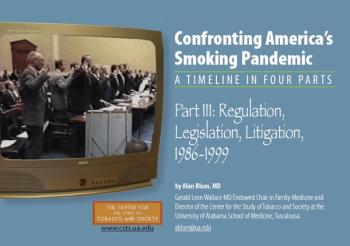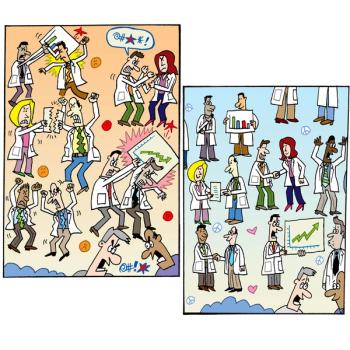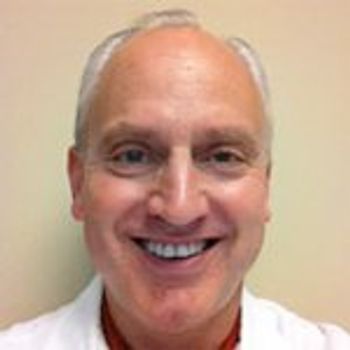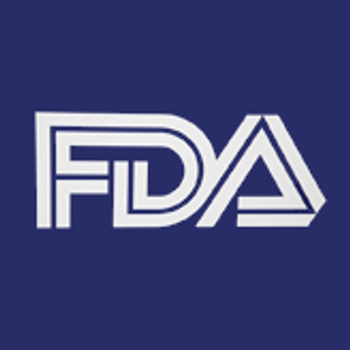
Partaking in physical activity was associated with a reduction in risk for as many as 13 cancer types regardless of body size or smoking history.

Your AI-Trained Oncology Knowledge Connection!


Partaking in physical activity was associated with a reduction in risk for as many as 13 cancer types regardless of body size or smoking history.

Although data are anecdotal, there is no question that the increased numbers of patients with insurance resulted in cancer patients receiving care they previously could not.

In this Medical News Minute, developed exclusively for Cancer Network, Dr. Bobby Lazzara examines a recent report that warns of different factors associated with an increased risk of stomach cancer.

A new study showed that as cancer survivors age, they have greater declines in certain physical health conditions, as well as an increased risk for depression.

Regular use of aspirin may reduce the risk of developing cholangiocarcinoma, according to the results of a new study.

Dr. Alan Blum and Cancer Network have partnered to assemble a four-part slideshow series addressing the history of America’s smoking pandemic. Part 3 highlights a period of regulation and legislation against the tobacco industry, and litigation in the form of class action and state lawsuits.

No matter where you practice medicine, if your duties include patient care then you are going to interact with other oncologists. In some cases you may question the quality of their care. Help your peers to become better physicians by respecting them first, then relaying your concerns to them. Here are some examples of how not to do it, paired with kinder, gentler alternatives.

While oncologic emergencies are common among cancer patients, they can often be avoided with close monitoring, early intervention, and ongoing patient education.

Cognitive behavioral therapy may reduce long-term memory-related issues linked to chemotherapy treatment in cancer survivors.

Do you know the prevalence of triple-negative breast cancer? How about the patient makeup in the START A and START B trials, which tested hypofractionated radiotherapy for breast cancer? Answer these questions and more.

This slide show highlights some of the top stories of the month, including the approval of a new agent for RCC, a study that found declines in prostate cancer deaths have mirrored the declines in smoking rates, and more.

Cancer patients have an increased risk of several common mental disorders, including depression and anxiety, beginning almost a year prior to the diagnosis.

Risk-stratification based on a biomarker and associated prophylaxis could help reduce the incidence of graft-vs-host disease in patients undergoing haploidentical transplantation.

Older soft-tissue sarcoma patients undergoing surgery derive greater benefit from radiotherapy than younger patients, according to a surprising analysis of more than 15,000 individuals.

The use of a noninvasive colorectal cancer screening test called a multi-target stool DNA test (mt-sDNA) detected the disease in patients who had previously avoided more invasive screening procedures.

A new study found that half of women age 40 to 44 evaluated at an academic practice qualified for annual mammography screening for breast cancer.

During the past decade, scientific evidence has emerged that shows that radiotherapy can induce: A) immunogenic cell death, a form of cancer cell death that is effectively signaling to the immune system; and B) a series of “danger” and pro-immunogenic signals that are sensed by the host’s immune system, and can be harnessed to reject the tumor.

Do you know the least common site for lung cancer metastasis? How about the best test for determining distant spread of disease? Answer these questions and more.

The combination of chemotherapy and radiation therapy resulted in longer overall survival than radiation alone in certain patients with grade 2 gliomas, according to long-term results from a randomized trial.

Unmarried patients with some of the most common types of cancer had higher risk for mortality compared with their married counterparts.

The American Society of Clinical Oncology released a statement calling for the rapid expansion of use of the human papillomavirus (HPV) vaccine to help protect thousands of people from HPV-associated cancers.

Oncologists are excited to relay the news to patients that hard-to-treat tumors benefit from a new type of immunotherapy called checkpoint inhibition, but is there a way to explain this without putting everyone in the room to sleep?

While continuing to warn against use of laparoscopic power morcellators for the removal of uterus or uterine fibroids in most women, the FDA is allowing the marketing of a containment system for use with certain power morcellators to isolate tissue not suspected to be cancerous.

A significant number of children who have completed treatment for acute lymphoblastic leukemia may be experiencing anxiety or depression, according to a new study.

Researchers from the National Cancer Institute are predicting that the rate of hepatocellular carcinoma (HCC) in the United States will likely decrease by the year 2030.

In case you missed it, check out our March recap featuring some of the latest in clinical trial news, a new indication for Afinitor, how genetics affect prognosis, and more.

The FDA has approved defibrotide sodium (Defitelio) for the treatment of hepatic veno-occlusive disease following hematopoietic stem cell transplantation in both adults and children.

Using simulation modeling, researchers found that PSA screening can be cost-effective if men with low-risk prostate cancer do not undergo treatment and if clinicians use restrictive criteria to make a decision to biopsy.

I recently spoke with someone who works for a hospital-based oncology clinic in another state. I am alarmed about the way the practice is structured. There the patient is never treated on the day they see the doctor. That means the patient must make at least two trips for every treatment. But I am told by others that this is standard.

A brain-training paradigm called neurofeedback reduced pain and other symptoms associated with chronic chemotherapy-induced peripheral neuropathy.